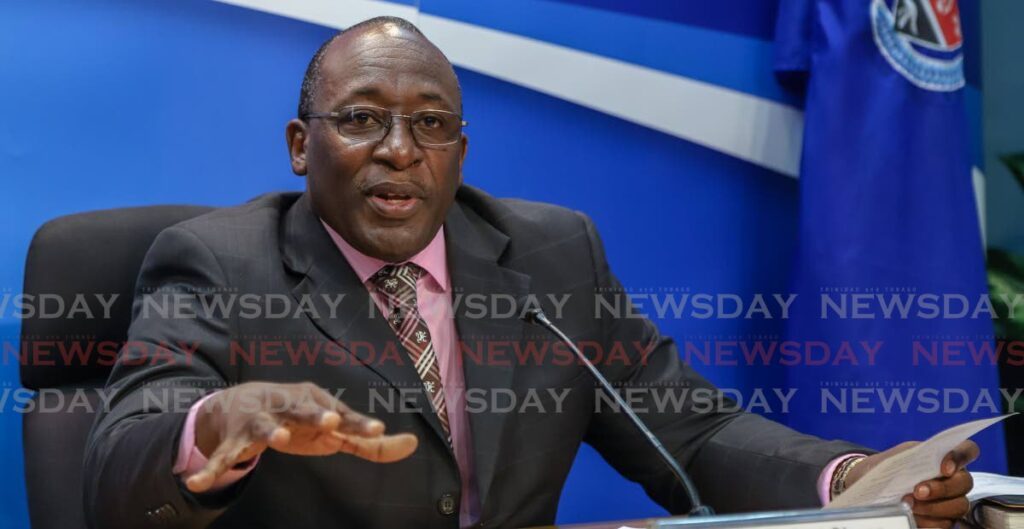PM: No place for cops in gang deals

The Prime Minister says the police cannot and should not get involved in negotiating a truce among warring gang factions believed to be responsible for a wave of shootings and murders along the East-West Corridor.
A newspaper report on Monday said a “peace agreement” was struck after officers from the Port of Spain Inter-Agency Task Force were able to arrange a deal between the gang bosses of the Sixx gang and the Rasta City gang.
Although Deputy Police Commissioner Curt Simon had dismissed the report earlier, Dr Rowley was asked about his thoughts on the matter at a press briefing on Monday afternoon.
He said, “Gang warfare is gang activity, (which) is criminal conduct. The Parliament understands this and has allotted a significant amount of effort to codify the law to allow the law enforcement in TT to respond to criminal conduct identified as gang activity…
“Notwithstanding the fact that if the police sees it, whether you are an abusing husband, a delinquent parent, or otherwise, the police will speak to you and be authorised to speak to you. What the police is not going to be authorised to do is to negotiate any abridgement of the laws of TT as it applies to any aspect of criminal conduct.”
Rowley said he was against sanctioning any criminal act. He referred to an alleged peace deal negotiated with gang leaders under the Manning government and suggested that any such deal would not work.
“Criminals who take a decision for crime as a business and a way of life. Two things they are not doing. They’re not giving up any firearm in any amnesty and they’re not giving up any authority in their community, or any rank that they would have had.
"And you have to be careful that in dealing with them, you don’t send the message that they have rank, and they get more rank because they could talk to you. You got to be careful with that.
“I have no problem with the police talking to anybody. Our police service has the authority to speak to any citizen in this country, and that judgement is a judgement for the police.
"But when you’re talking about this gang and that gang negotiating a peace treaty with the police blowing a whistle as a referee, that is not on.”
Deputy CoP: Police not giving up fight against gang activity
Simon, speaking on I95.5fm on Monday morning, said the police, while aware of gangs occasionally agreeing to a truce, were not involved in any such peace agreements.
“We have adopted different approaches which involve covert and overt manoeuvres.
“None of our manoeuvring involves being involved in facilitating, encouraging, discussing, or advising gangs on making any deals with each other, to bring any peace between each other.
“From time to time, we know that gangs would meet and try to broker their own peace. I have no quarrels with that. I have no qualms with that. But the TTPS in no way (is involved).
“We have held many meetings, many discussions in the last couple of days about our responses and reactions to the gang activity, and nothing came up. There were no considerations, no talk, and no rhetoric about anything about the TTPS being involved in brokering (a deal).
"We may become aware that gangs may want to meet and hold their discussions. We would not encourage it, we would not discourage it. What the gangs do in relation to that, they would do.”
Simon also defended the police’s work in attempting to address gang violence.
“The TTPS mandate is to arrest and bring before the courts everyone who is found breaking the law, including the gangs, and we have not abandoned that mandate.”
Simon said police attempts to negotiate truces between gangs in other jurisdictions had failed.
“It was attempted in El Salvador, Mexico, the US, where police sort of got themselves involved and they all fell apart quickly. And we do not have to go through that. There are a number of different avenues in dealing with crimes and dealing with gangs and gangs. And we are looking at all of these different approaches as it relates to solving and perhaps even dismantling the impact of gang.”
He said gang investigations throughout the world were lengthy and challenging, but locally, police were experimenting with the anti-gang law and how it could be used.
“Usually we expect that a proper gang investigation – where we are looking to bring down the entire syndicate and where we use all that the law allows us to use – takes between 18 months and two years.
“We have made some cases and we are carrying them to court and we want to hear what the court has to say about the interpretation that the TTPS has adopted.
“However, the other view, the other approach, is a much longer-standing one. The techniques to be included tend to be a bit longer and more patient, because of what needs to be developed to prove certain things that the law dictates.
“It does not mean that we are not doing the work. It does not mean that the gang members are not being charged by the police.
“A number of gang members are being charged by the police, but it’s just that the evidence may not be there as yet for them to be charged under the Gang Act.”


Comments
"PM: No place for cops in gang deals"